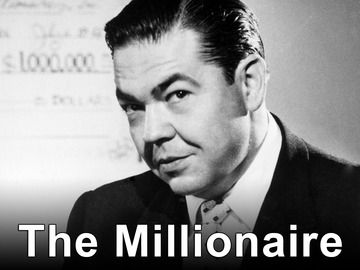A&E Television’s Pick for the Most Influential Person of the Millennium: Who Topped the List and Why It Matters
Introduction: The Impact of Historical Rankings on Cultural Perception
In the closing months of the 20th century, Arts & Entertainment Television (A&E) embarked on a project that would spark debate among educators, historians, and the public alike. Their special, “Biography of the Millennium,” set out to identify and rank the most influential individuals of the last 1000 years. This ranking not only reflected historical impact but also offered a lens through which to consider the long-term effects of innovation, leadership, and cultural change. The outcome was a highly publicized list that continues to shape discussions about influence in the modern era.
Who Did A&E Select as the Most Influential Person of the Millennium?
The top spot on A&E’s list was awarded to Johann Gutenberg , the inventor of the movable-type printing press. According to reports from the time and historical archives, Gutenberg’s development of mass-printing technology in the 15th century fundamentally altered the dissemination of information, fueling the Renaissance, the Reformation, and the scientific revolution. His influence was deemed greater than that of world leaders, scientists, and artists, as the printing press enabled the rapid spread of ideas across continents and generations [1] [3] .

Source: imdb.com
How Was the Most Influential Person of the Millennium Chosen?
A&E’s “Biography of the Millennium” sought the opinions of a wide spectrum of scholars, historians, and viewers. The process involved extensive surveys and consultations with experts across fields such as science, politics, the arts, and philosophy. The network considered not only individual achievements but also the broader, cascading effects those achievements had on human progress. This approach emphasized the transformative power of certain key innovations-such as the printing press-in shaping the course of history. The public reveal of the list was accompanied by televised discussions and debates, further engaging a wide audience in considering what constitutes true influence [1] [4] .
Why Was Johann Gutenberg Chosen?
Johann Gutenberg’s selection as the most influential person of the millennium can be attributed to the unparalleled ripple effects of his invention. The printing press made it possible for books to be produced quickly, cheaply, and in large quantities. Before its invention, books were hand-copied and accessible only to the elite. Gutenberg’s technology democratized knowledge, making education possible on a mass scale and empowering movements such as the Reformation, which forever altered religious, social, and political landscapes. Many historians have pointed out that without the printing press, the rise of scientific thought, the spread of literacy, and the acceleration of cultural exchange would have been severely hampered [1] .
Who Else Was Included in the Top 10?
While Gutenberg topped the list, A&E’s ranking included a diverse group of figures from various disciplines. The top 10 were:

Source: fedez.lnk.to
- Johann Gutenberg (printing press)
- Isaac Newton (laws of gravity and physics)
- Martin Luther (Protestant Reformation)
- Charles Darwin (evolution)
- William Shakespeare (literature)
- Christopher Columbus (exploration)
- Karl Marx (political theory)
- Albert Einstein (physics)
- Nicolaus Copernicus (astronomy)
- Galileo Galilei (astronomy and science)
This cross-section highlights the variety of ways individuals can exert influence-through science, political change, exploration, or art [1] .
Accessing the Full List and Additional Resources
If you are interested in exploring the full list of A&E’s “100 Most Influential People of the Millennium,” you may search for “A&E Biography of the Millennium” using reputable information sources, such as major library collections, educational databases, or respected media archives. Many educational websites and historical databases provide summaries or discussions of the list. For verified, up-to-date information, consider checking with your local library’s reference desk or searching for the program through established streaming services that offer historical documentaries.
How to Learn More About Historical Influence and Legacy
To further understand how historical influence is assessed and debated, you can:
- Search for academic articles using platforms like JSTOR or Google Scholar, focusing on topics such as “history of printing press influence” or “biographical impact studies.”
- Contact local universities’ history departments, which may offer public lectures or reading recommendations on the subject of influential historical figures.
- Visit established museums with exhibits on communication, innovation, or world history-these often feature sections on Gutenberg and other pivotal figures.
For those seeking official educational programming, look for documentary series from established broadcasters such as PBS or BBC, which frequently revisit themes of innovation and influence in human history.
Challenges in Ranking Historical Influence
Any list attempting to rank historical figures is inherently subjective and often sparks debate. Different cultures, disciplines, and time periods may value achievements in diverse ways. Some critics argue that such lists can oversimplify the complex web of historical causality, while others see them as valuable tools for sparking public interest in history and prompting deeper inquiry. It is important to approach these rankings as starting points for discussion rather than definitive judgments.
Alternative Approaches to Recognizing Influence
While A&E’s list is well-known, other organizations and historians have produced different rankings, sometimes prioritizing technological innovators, political leaders, or cultural icons. Exploring multiple lists and perspectives can provide a more nuanced understanding of how influence is perceived and measured. You may also consider engaging with online forums or community groups focused on history to share perspectives and learn from others.
Key Takeaways
The selection of Johann Gutenberg as the most influential person of the millennium by A&E Television underscores the transformative power of innovation in shaping human society. Whether you agree with the ranking or not, examining the methods and debates behind such selections can deepen your appreciation for the complex forces that drive historical change.
References
MORE FROM hotondeals.com













